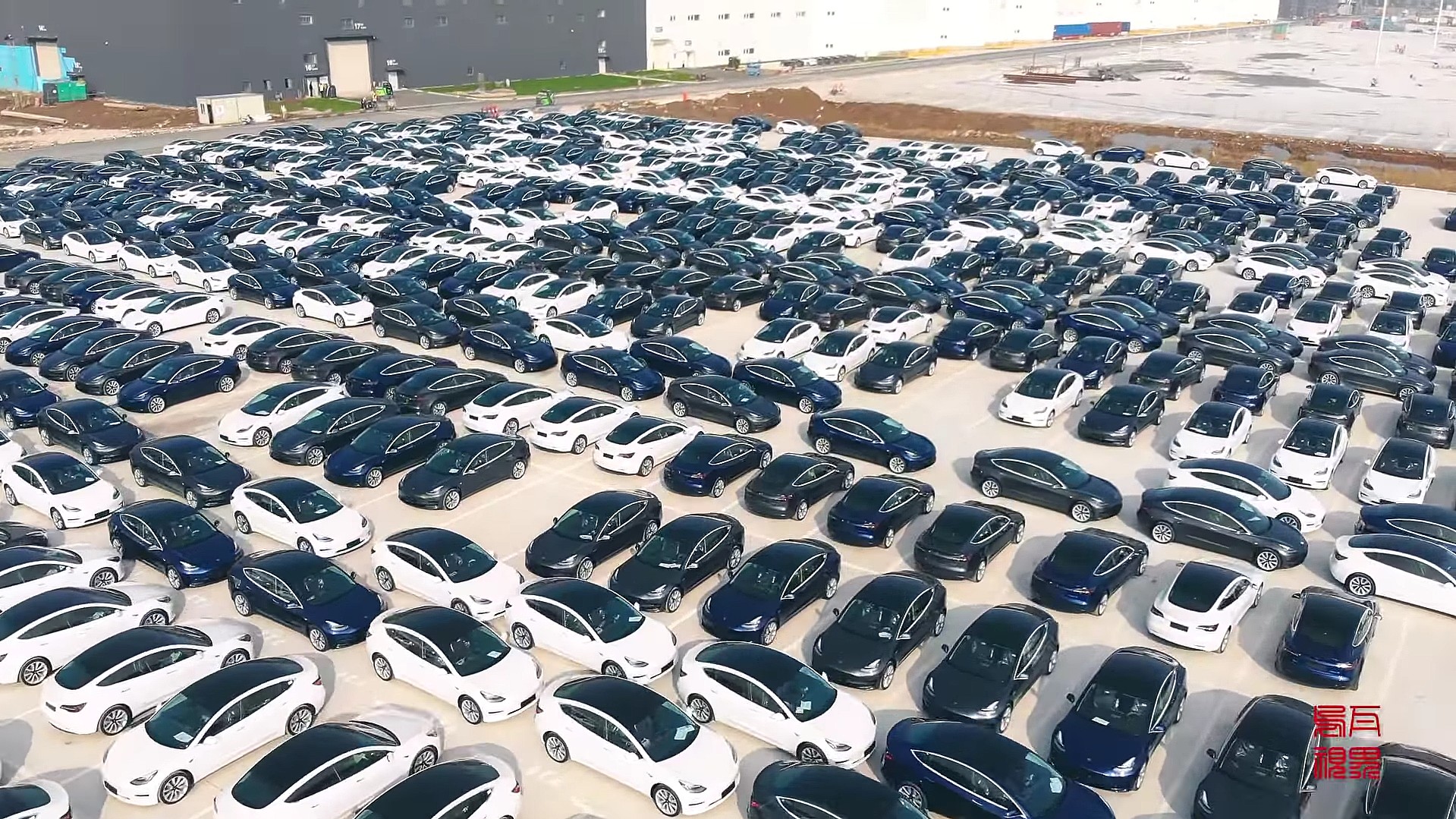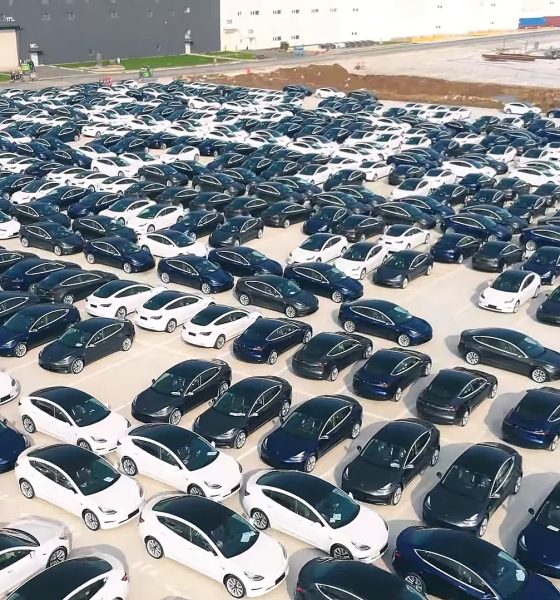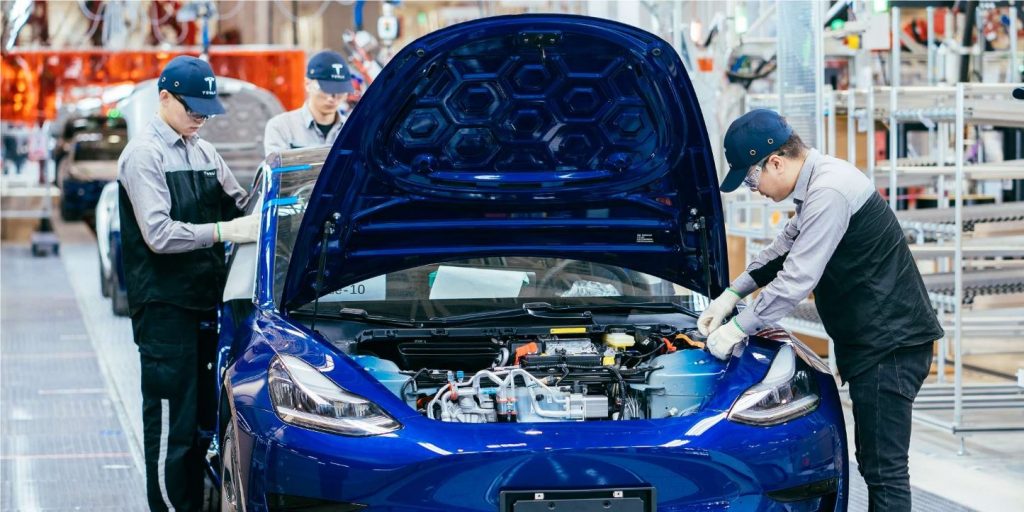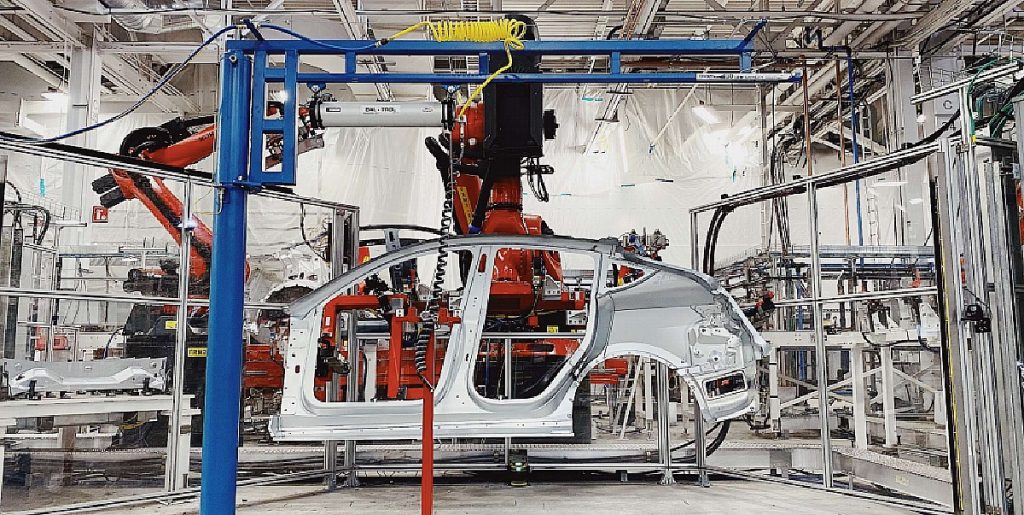

Investor's Corner
Tesla's capital raise unlocks a new chapter in the TSLA growth story
Tesla’s (NASDAQ:TSLA) recently-announced $2 billion capital raise may be surprising to some considering CEO Elon Musk’s statements during the company’s Q4 2019 earnings call, but the additional funding does point to one notion. Following this funding round, Tesla will have more cash than ever before, and this makes the company primed to go full speed into its upcoming high-profile initiatives.
It has been less than a year since Tesla last raised capital. Yet a lot of things have happened and a lot of things have changed since the company’s funding round in May 2019. While it could be argued that Tesla opted to raise money last year at a time when the company was at a low point, the electric car maker seems intent on increasing its cushion from a position of strength this time around.
Arguments about Elon Musk’s apparent opposition to a funding round aside, there are several compelling arguments for Tesla’s $2 billion capital raise. With this latest funding round, Tesla’s cash position would be at its highest in the company’s history at around $8 billion. That provides a lot of runway, and it’s probably enough to kickstart several high-profile projects.

Tesla’s press release about its new funding round was very understated, with the company merely stating that the additional capital will be used to “strengthen” its balance sheet. Tesla also noted that the funds would be used for “general corporate purposes.” These statements provide a pretty open interpretation of what the additional funding could be used for, though considering the company’s upcoming projects, it’s quite difficult to argue against Tesla’s additional funds at this stage.
The electric car maker, after all, has several high-profile projects that are ongoing. Giga Shanghai is reportedly on its second phase of construction, with the facility now being prepared for its eventual production of the Model Y crossover. Giga Berlin is set to break ground soon, and construction of Phase 1 is expected to commence soon after. The Model Y is also set to enter production fully, followed by the Semi later this year. The Cybertruck is also set to be produced next year, and perhaps the next-gen Roadster as well. A ramp of the Semi’s Megacharger Network is also yet to begin.

These are but part of the company’s projects for its electric car business. Tesla also intends to pursue a serious ramp of its energy division, propelled by its flagship Solarglass Roof tiles. The company’s battery storage products, such as the Megapack and Powerwall, are yet to be fully ramped as well.
Amidst all these initiatives, it is pertinent to note that for the longest time, Tesla was operating pretty much like a stereotypical Silicon Valley startup: cash-strapped at times and spending extremely frugally to survive. Yet with Model 3 demand proving consistent and more high-volume vehicles like the Model Y coming soon, the story seems to have changed for Tesla. This time around, the company is pursuing its trademark ambitious goals more equipped than before. This is quite an encouraging sign.
After all, a cash-strapped Tesla is what brought the Model S to the market, and that changed the very perception of what a premium sedan could be like. A cash strapped Tesla is also what created the Model 3, a vehicle so disruptive it is thriving at a time when sedans are a dying breed in a number of key markets. One can only imagine what a well-funded, well-equipped Tesla could do, especially when it’s about to release its most mainstream vehicles yet.
Disclosure: I have no ownership in shares of TSLA and have no plans to initiate any positions within 72 hours.

Elon Musk
SpaceX IPO could push Elon Musk’s net worth past $1 trillion: Polymarket
The estimates were shared by the official Polymarket Money account on social media platform X.

Recent projections have outlined how a potential $1.75 trillion SpaceX IPO could generate historic returns for early investors. The projections suggest the offering would not only become the largest IPO in history but could also result in unprecedented windfalls for some of the company’s key investors.
The estimates were shared by the official Polymarket Money account on social media platform X.
As noted in a Polymarket Money analysis, Elon Musk invested $100 million into SpaceX in 2002 and currently owns approximately 42% of the company. At a $1.75 trillion valuation following SpaceX’s potential $1.75 trillion IPO, that stake would be worth roughly $735 billion.
Such a figure would dramatically expand Musk’s net worth. When combined with his holdings in Tesla Inc. and other ventures, a public debut at that level could position him as the world’s first trillionaire, depending on market conditions at the time of listing.
The Bloomberg Billionaires Index currently lists Elon Musk with a net worth of $666 billion, though a notable portion of this is tied to his TSLA stock. Tesla currently holds a market cap of $1.51 trillion, and Elon Musk’s currently holds about 13% to 15% of the company’s outstanding common stock.
Founders Fund, co-founded by Peter Thiel, invested $20 million in SpaceX in 2008. Polymarket Money estimates the firm owns between 1.5% and 3% of the private space company. At a $1.75 trillion valuation, that range would translate to approximately $26.25 billion to $52.5 billion in value.
That return would represent one of the most significant venture capital outcomes in modern Silicon Valley history, with a growth of 131,150% to 262,400%.
Alphabet Inc., Google’s parent company, invested $900 million into SpaceX in 2015 and is estimated to hold between 6% and 7% of the private space firm. At the projected IPO valuation, that stake could be worth between $105 billion and $122.5 billion. That’s a growth of 11,566% to 14,455%.
Other major backers highlighted in the post include Fidelity Investments, Baillie Gifford, Valor Equity Partners, Bank of America, and Andreessen Horowitz, each potentially sitting on multibillion-dollar gains.
Elon Musk
Elon Musk hints Tesla investors will be rewarded heavily
“Hold onto your Tesla stock. It’s going to be worth a lot, I think. That’s my bet,” Musk said.

Elon Musk recently hinted that he believes Tesla investors will be rewarded heavily if they continue to hold onto their shares, and he reiterated that in a new interview that the company released on its social accounts this week.
Musk is one of the most successful CEOs in the modern era and has mammothed competitors on the Forbes Net Worth List over the past year as his holdings in his various companies have continued to swell.
Tesla investors, especially those who have been holding shares for several years, have also felt substantial gains in their portfolios. Over the past five years, the stock is up over 78 percent. Since February 2019, nearly seven years ago to the day, the stock is up over 1,800 percent.
Musk said in the interview:
“Hold onto your Tesla stock. It’s going to be worth a lot, I think. That’s my bet.”
Elon Musk in new interview: “Hold on to your $TSLA stock. It’s going to be worth a lot, I think. That’s my bet.” pic.twitter.com/cucirBuhq0
— Sawyer Merritt (@SawyerMerritt) February 26, 2026
It’s no secret Musk has been extremely bullish on his own companies, but Tesla in particular, because it is publicly traded.
However, the company has so many amazing projects that have an opportunity to revolutionize their respective industries. There is certainly a path to major growth on Wall Street for Tesla through its various future projects, including Optimus, Cybercab, Semi, and Unsupervised FSD.
- Optimus (Tesla’s humanoid robot): Musk has discussed its potential for tasks like childcare, walking dogs, or assisting elderly parents, positioning it as a massive long-term driver of company value.
- Cybercab (Tesla’s robotaxi/autonomous ride-hailing vehicle): a fully autonomous vehicle geared specifically for Tesla’s ride-sharing ambitions.
- Semi (Tesla’s electric truck, with mentions of expansion, like in Europe): brings Tesla into the commercial logistics sector.
- Unsupervised FSD (Full Self-Driving software achieving full autonomy without human supervision): turns every Tesla owner’s vehicle into a fully-autonomous vehicle upon release
These projects specifically are some of the highest-growth pillars Tesla has ever attempted to develop, especially in Musk’s eyes, as he has said Optimus will be the best-selling product of all-time.
Many analysts agree, but the bullish ones, like Cathie Wood of ARK Invest, are perhaps the one who believes Tesla has incredible potential on Wall Street, predicting a $2,600 price target for 2030, but this is not even including Optimus.
She told Bloomberg last March that she believes that the project will present a potential additive if Tesla can scale faster than anticipated.
Elon Musk
Tesla stock gets latest synopsis from Jim Cramer: ‘It’s actually a robotics company’
“Turns out it’s actually a robotics and Cybercab company, and I want to buy, buy, buy. Yes, Tesla’s the paper that turned into scissors in one session,” Cramer said.

Tesla stock (NASDAQ: TSLA) got its latest synopsis from Wall Street analyst Jim Cramer, who finally realized something that many fans of the company have known all along: it’s not a car company. Instead, it’s a robotics company.
In a recent note that was released after Tesla reported Earnings in late January, Cramer seemed to recognize that the underwhelming financials and overall performance of the automotive division were not representative of the current state of affairs.
Instead, we’re seeing a company transition itself away from its early identity, essentially evolving like a caterpillar into a butterfly.
The narrative of the Earnings Call was simple: We’re not a car company, at least not from a birds-eye view. We’re an AI and Robotics company, and we are transitioning to this quicker than most people realize.
Tesla stock gets another analysis from Jim Cramer, and investors will like it
Tesla’s Q4 Earnings Call featured plenty of analysis from CEO Elon Musk and others, and some of the more minor details of the call were even indicative of a company that is moving toward AI instead of its cars. For example, the Model S and Model X will be no more after Q2, as Musk said that they serve relatively no purpose for the future.
Instead, Tesla is shifting its focus to the vehicles catered for autonomy and its Robotaxi and self-driving efforts.
Cramer recognizes this:
“…we got results from Tesla, which actually beat numbers, but nobody cares about the numbers here, as electric vehicles are the past. And according to CEO Elon Musk, the future of this company comes down to Cybercabs and humanoid robots. Stock fell more than 3% the next day. That may be because their capital expenditures budget was higher than expected, or maybe people wanted more details from the new businesses. At this point, I think Musk acolytes might be more excited about SpaceX, which is planning to come public later this year.”
He continued, highlighting the company’s true transition away from vehicles to its Cybercab, Optimus, and AI ambitions:
“I know it’s hard to believe how quickly this market can change its attitude. Last night, I heard a disastrous car company speak. Turns out it’s actually a robotics and Cybercab company, and I want to buy, buy, buy. Yes, Tesla’s the paper that turned into scissors in one session. I didn’t like it as a car company. Boy, I love it as a Cybercab and humanoid robot juggernaut. Call me a buyer and give me five robots while I’m at it.”
Cramer’s narrative seems to fit that of the most bullish Tesla investors. Anyone who is labeled a “permabull” has been echoing a similar sentiment over the past several years: Tesla is not a car company any longer.
Instead, the true focus is on the future and the potential that AI and Robotics bring to the company. It is truly difficult to put Tesla shares in the same group as companies like Ford, General Motors, and others.
Tesla shares are down less than half a percent at the time of publishing, trading at $423.69.








